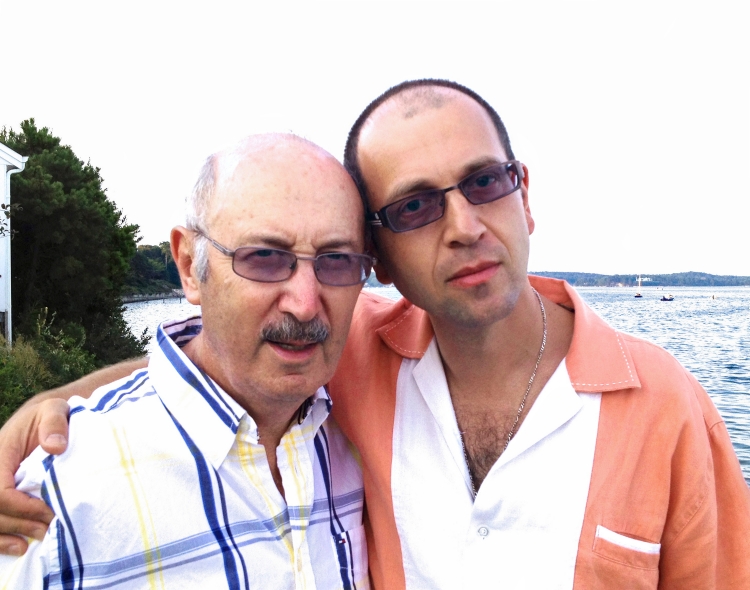
By
A Boston College symposium will mark the translation and publication of the new book Dinner with Stalin and Other Stories, edited and co-translated by Professor of Russian, English, and Jewish Studies Maxim D. Shrayer, and written by his father David Shrayer-Petrov, a prolific and celebrated author of contemporary Russian-American fiction.
The free, public event will be held on Nov. 11 at 7 p.m. in Devlin 101.
Set in the former USSR, Western Europe and America, Dinner with Stalin’s 14 stories feature Soviet Jews, most of them immigrants, grappling with issues of identity, acculturation and assimilation. The Nov. 11 event will feature selected readings, and offer attendees the opportunity to engage communally with the book’s cultural, religious and literary topics.
“When an author’s son is also his translator and editor, he wants to represent more than his father’s voice,” said Shrayer, a critically acclaimed author and translator who has won numerous awards and honors, including a prestigious Guggenheim Fellowship.
“Before me on the page were not only my father’s words; in my mind’s eye was my father’s life story. I wanted the translations to recapture his intonation, his breath and his silence, in the most fitting Anglo-American idiom. And I wished for these translations to stand as a memorial to our ancestors, carrying on Jewish thought and spirit,” Shrayer added.
The symposium, Shrayer says, is “a celebration of the art of literary translation. I was fortunate to work with a remarkable team of translators, among them Margarit Ordykhanyan, Molly Godwin-Jones and Leon Kogan, former Boston College graduate students and graduates of my seminar on literary translation. All of them are gifted translators and great enthusiasts of literary translation, which has the power to bridge countries and identities, and gives hope for the survival of culture against all odds.”
Born in Leningrad in 1936, David Shrayer-Petrov emigrated to the US in 1987 and settled with his family in New England. He is the author of 23 books in his native Russian and of several books in English translation, and this most recent work appears in the renowned Library of Modern Jewish Literature, which has featured volumes by some of the greats of Jewish writing.
Shrayer-Petrov explores aspects of anti-Semitism, persecution, problems of mixed marriages, dilemmas of conversion, and the survival of Jewish memory. Both an author and a physician, he examines his literary subjects through the lenses of medicine and literature.
His fiction focuses on Russian Jews who, although having been persecuted in the former Soviet Union, continue to promote their sense of cultural Russianness, even as they and their children increasingly resemble American Jews. He considers immigrants’ complex understanding of their cultural identity: Americans at work, Russians at home, and Jews at worship.
The title story, “Dinner with Stalin,” revolves around a group of émigré friends visited by Joseph Stalin, apparently returned from the dead; but this specter is only an actor playing Stalin, which adds an absurdist layer to this tale. Among the guests are representatives of a number of nationalities from the former USSR. At last, the Jews are equal at this table, allowing the émigré protagonist and his wife to ask Stalin blunt questions about Soviet and Jewish history.
“Above all else, Dinner with Stalin is about Russian Jews who found themselves abroad, first emigrating and later grafting themselves onto American soil,” said Shrayer-Petrov in a recent interview.
In addition to his son, Maxim, Shrayer-Petrov’s wife of more than 50 years — Emilia, a former refusenik activist — translated two stories in the collection. Beyond the BC graduate student contingent, other translators include University of New Hampshire professors Arna Bronstein and Aleksandra Fleszar. They will attend the symposium and participate in readings.
The translation was made possible with the support of the Institute for the Liberal Arts, which is sponsoring the event in conjunction with BC’s Jewish Studies Program, English Department, and Department of Slavic and Eastern Languages and Literatures.
Information on the symposium is available at http://bit.ly/1yqB8S1.



